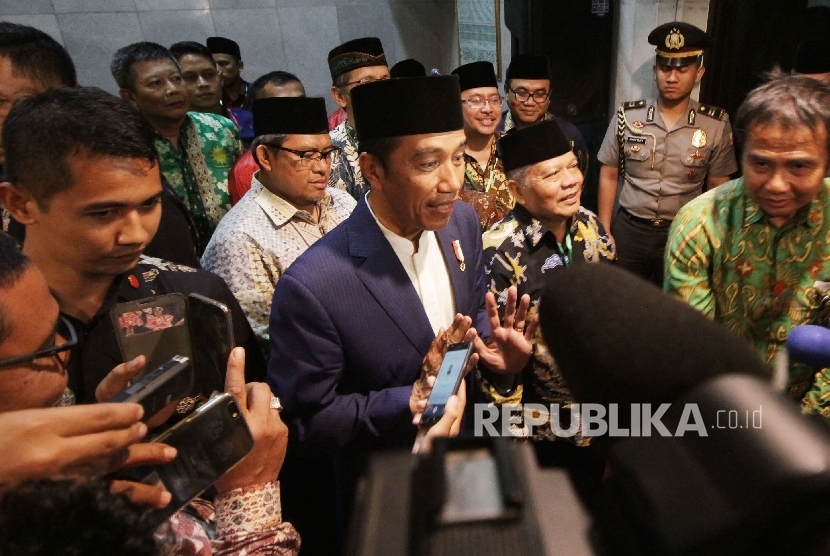REPUBLIKA.CO.ID, JAKARTA -- President Joko Widodo (Jokowi) denied the government regulation in lieu of law (Perppu) on mass organizations (Ormas) was repressive, since in reality, its draft was made democratically.
"The conclusion is that such a perpu is needed, so that the handling of matters relating to the state's existence are not long-winded," President Jokowi remarked during a gathering with the Jamiyyah Great Family of Indonesian Islamic Unity in Bandung, West Java, on Tuesday night.
Jokowi made the statement in response to a question posed by a Persis member that the Perpu on Ormas was considered repressive by several parties.
The head of state also emphasized that the Perppu was drafted democratically.
The Perppu was issued following the government's decision to dissolve Hizbut Tahrir Indonesia, an Islamic organization seeking to establish a Caliphate administration in Indonesia against the state's Constitution.
The government has sent a copy of the Perppu to the House of Representatives after it was publicly announced by Coordinating Minister for Law, Security, and Political Affairs Wiranto.
In line with the regulation, the government announced that it had issued the Perppu, but its utilization by the government depends on a condition.
After the issuance of the Perppu, the government, through the Home Affairs Ministry and Law and Human Rights Ministry, will conduct a verification of mass organizations reaching a total of 344,039 in Indonesia.
Based on Perppu No. 2 of 2017, the two ministries have the right to cancel the license of a mass organization that is found to adopt an ideology that runs counter to the Pancasila state ideology.
A mass organization in Indonesia is required to adopt the four pillars of the nation: Pancasila, Unitary State of Republic of Indonesia, the 1945 Constitution, and Bhinneka Tunggal Ika or unity in diversity.
The issuance of the Perppu has drawn strong reactions from several politicians and law experts saying President Jokowi "has taken a fatal step leading the country into a dark era."


